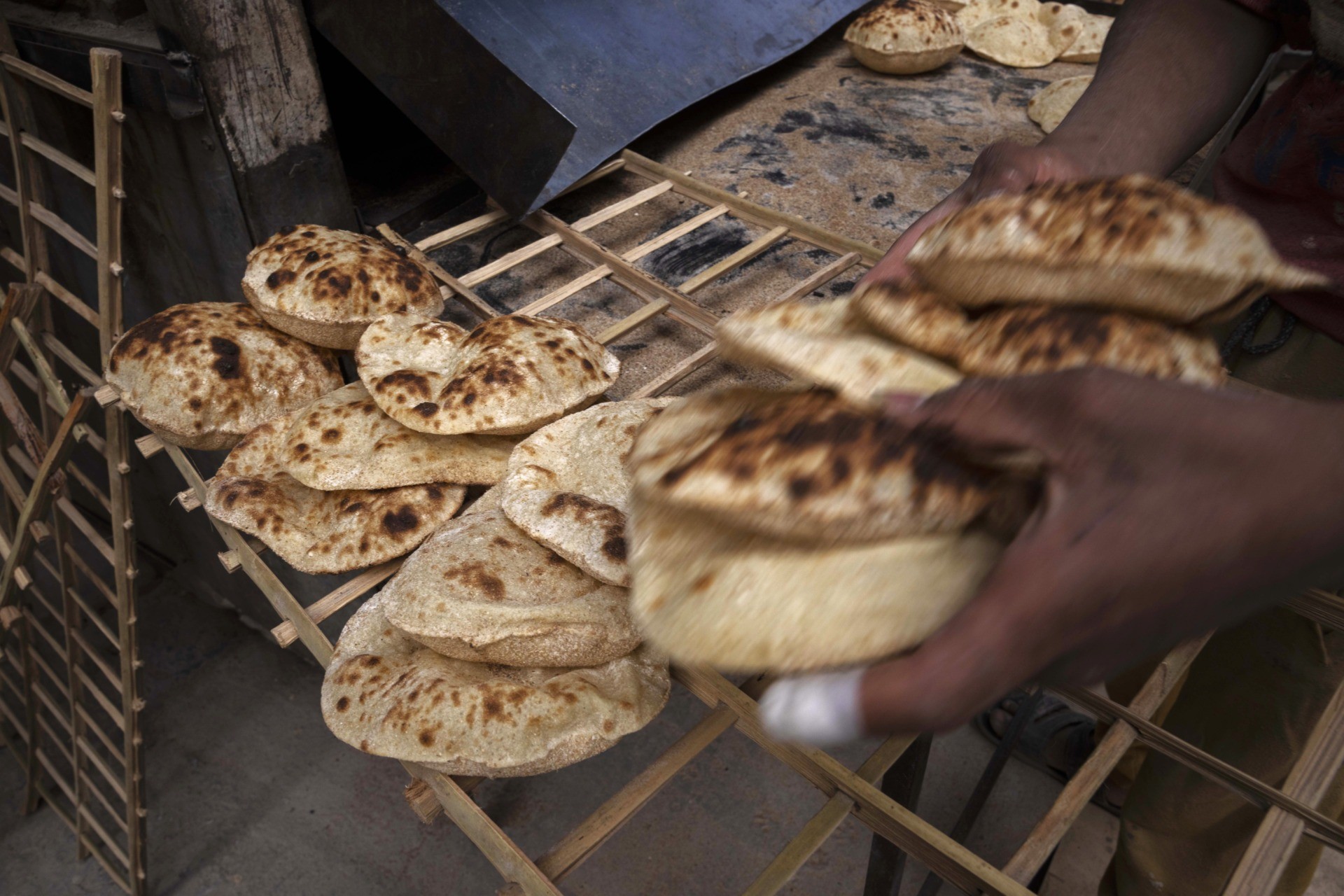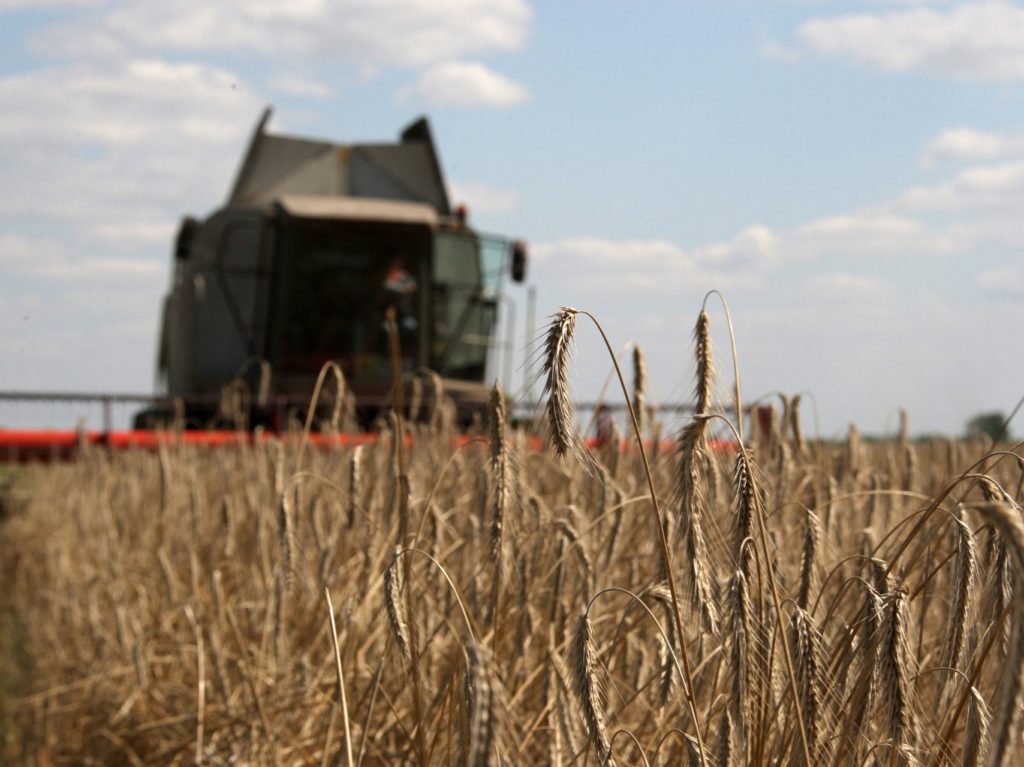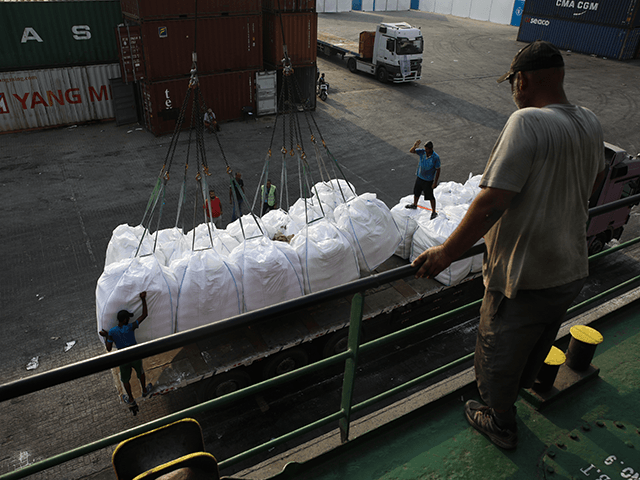Lebanese Trade Minister Amin Salam warned on Sunday that Lebanon faces a major food crisis, especially a severe shortage of wheat.
The Russian invasion of Ukraine has cut off desperately-needed supplies of wheat, and inventories are low due to Lebanon’s long-running political and economic crisis.
“In addition to the wheat, we’re having challenges that we’re concerned about two months from today that includes sunflower oil and sugar,” Salam said on Sunday, appealing for help from the international community.
The trade minister noted Lebanon lost its national reserves of wheat in the 2020 Beirut port explosion, forcing the government to use “private sector silos” for wheat storage. He said Lebanon is seeking alternative suppliers, possibly in the United States or France, to replace the 80 percent of Lebanon’s wheat that used to come from Russia and Ukraine.
“We know that our national reserves are at a very difficult place. But we are very confident that the IMF agreement will help Lebanon get out of its crisis,” he added.

Minister of Economy and Trade Amin Salam, speaks during a press conference in Beirut, Lebanon, Friday, Feb. 25, 2022. Salam said the small crisis-hit country which imports most of its wheat from Ukraine has one month’s wheat reserves at most. (AP Photo/Bilal Hussein)
The International Monetary Fund (IMF) reached a draft funding deal for Lebanon on Thursday, but Lebanese lawmakers warned it would be difficult to implement any of the reforms demanded by the IMF until parliamentary elections are held in May, and many analysts doubt the reforms will happen at all, given the endless factional squabbling and deep corruption in Beirut.

The Russian tanks and missiles besieging Ukraine are threatening the food supply in places such as Lebanon, where diets are dominated by government-subsidized bread. (AP Photo/Nariman El-Mofty)
Contrary to Salam’s optimism, key regional supporters such as Saudi Arabia and Kuwait appear to have lost patience with Lebanon, in part because the Iran-backed terrorist group and political party Hezbollah is growing steadily more powerful.

Wheat is pictured as a farmer harvests a field on land near Zhovtneve village, in the region of Chernigov, some 220km north of Kiev. (GENYA SAVILOV/AFP via Getty Images)
Several of Lebanon’s wheat mills shut down last week, cutting almost half of the national flour supply, because the last shipment of wheat from Ukraine was contaminated with moisture and could not be used until the Ministry of Agriculture performed extensive tests. A prominent flour distributor warned there was only enough flour stock to meet market demand for 25 days.
The World Food Program (WFP) said Sunday it will increase financial aid and food rations to Lebanon to stave off a crisis. The WFP noted Lebanon has many mouths to feed, as it currently hosts 1.3 million Syrian refugees in addition to the 2.1 million permanent population.
Unfortunately, the WFP warned last month that it obtains half of its own wheat supply from Ukraine and its resources are stretched dealing with food crises around the world that were exacerbated by the Russian invasion.
When Lebanese importers began frantically seeking alternatives to Russian and Ukrainian wheat in March, the National noted other suppliers either charge substantially more for their product or are reluctant to do business with Lebanon because they fear their invoices might not be paid.
On Saturday, the National reported “panic-buying” of wheat and flour across Lebanon, while Channel News Asia reported long lines at bakeries and shortages of bread. Many bakeries chose to shut down because they had little product to sell, and could not afford the fuel needed to power their generators. Food sellers generally rely on private generators because public electricity is constantly cut in Lebanon.
“This is the first time I come to this bakery. There isn’t any bread left in stores. Is there anything left at all in Lebanon?” one dejected shopper asked.
Skyrocketing prices, currency devaluation, and food shortages hit Lebanon just as the Muslim holiday of Ramadan began. The price of the ingredients needed to prepare staple meals has more than doubled – a painful and embarrassing state of affairs for a holiday that emphasizes generosity, and traditionally concludes with a feast in May after a month of dawn-to-dusk fasting. Lebanese Muslims grimly joke that the past few crisis-wracked Ramadan seasons have made them exceptionally good at the fasting part.

COMMENTS
Please let us know if you're having issues with commenting.